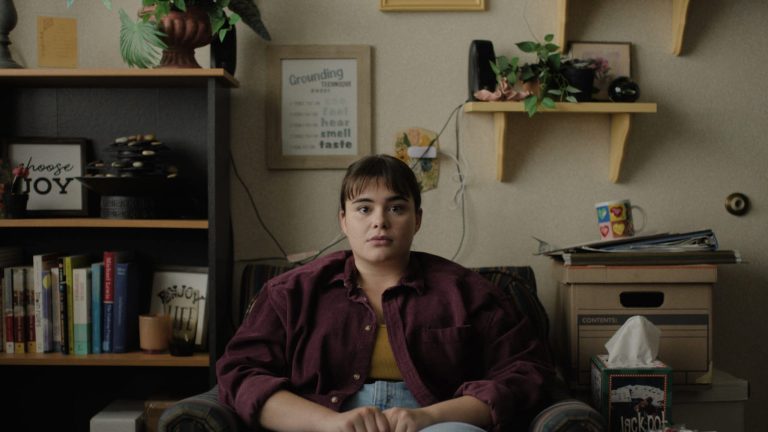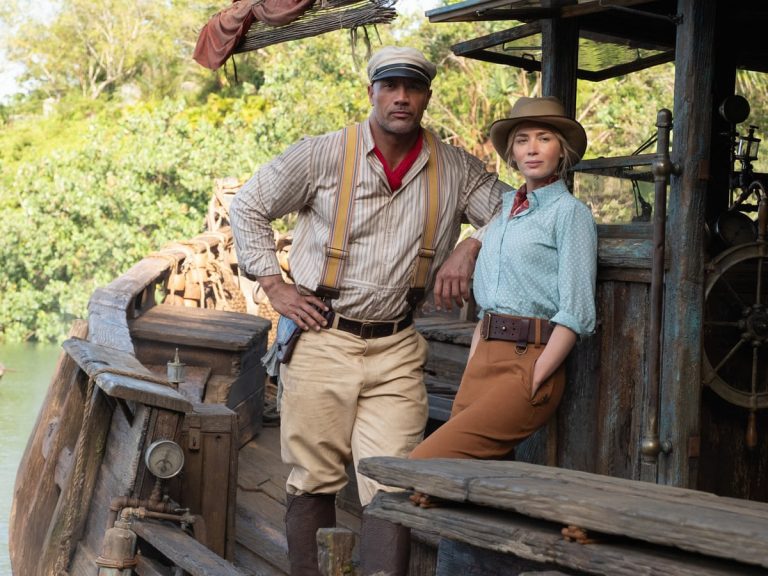In Chris Molina’s endearing debut feature, “Fallen Fruit,” twenty-three-year-old Alex (Ramiro Batista) has returned home to Miami after a breakup with his boyfriend. He can’t seem to wrench himself out of a sunken state of pitiless desolation. He tries his hand at various gigs but struggles to truly invest his passion in them. When his childhood friend and the only person he’d imagined would be there for him moves out of Miami for work, he feels shorn further.
There’s a loose-limbed languor that characterizes the rhythm of the film, with which Molina draws us into the inner emotional world of his protagonist. It helps enormously that Ramiro Batista not only has charm in spades but also harnesses a mellowness that constantly hints at an inner churn that is tearing Alex apart. At one point, he says wistfully he is just floating. This is the guiding spirit for the film’s emotional fabric that has a weave of uncommon delicacy.
What’s marvelous here is how Molina imbues the film with unforced ease even when his screenplay plunges into the sheer heartbreak and despair firmly embedded in the circumstance. The softness in Molina’s telling and gentle intimacy with which he orchestrates dramatically significant moments between his characters lend a gossamer-like quality to the film. This is also a film that is eager and brave to unabashedly embrace that sense of moody wandering atypical to the central experience of trying to move on and radically re-align one’s life.
Alex is lost, confused, and racked with mortification, none of which he feels comfortable sharing with his family, who retreat and allow him a space of mourning and healing. Alex had flunked his degree and left Miami to move in with his presumably long-term boyfriend to New York for the latter’s job. Since he had pivoted his entire life and priorities around the relationship, the breakup leaves him flailing without an anchor to hold onto. He is compelled to start anew in the city which he thought he’d left behind for good. Batista’s performance holds the requisite melancholic strains as well as the gush of sweet, coy realizations with equal tenderness. An aching fragility and vulnerability transmits with a subdued yet powerful glow in the manner in which he carries his character’s throbbing insecurities and anxieties.

“Fallen Fruit” frequently reaffirms itself as being one of those films determined to be a complex, layered ode to a city, encompassing a whole gamut of messy, unwieldy emotions. With his camcorder, he records random everyday scenes of life in Miami: bustling roads, couples stealing a moment of love, and the picturesque quiet. However, this layer of the film feels shaky and thinly realized. On this front, the relationship with his city, so focal to the film, doesn’t register with the distinctive force as the fuss-free queerness so exquisitely rendered alive does.
Alex yearns to escape its suffocating grip, resenting its heat, traffic, and, most importantly, how the city seems to drown him in more crushing loneliness and inconsequentiality. Home, instead of offering some sort of reprieve, pushes him into being adrift furthermore. But it is also because Alex hinges close to being complacently trapped in his misery and meandering. He must outgrow the carapace of being too hopelessly entangled in his loss and grief in order to let in the revitalizing joy that comes through a hook-up. Chris (Austin Cassel) becomes a bulwark of sorts for him, freeing him up and proposing there might be more to Miami and life than his dire hopes.
Chris is relatively older, more experienced, and navigates the world with self-assuredness. He is startled by the bumbling ingenue Alex seems to be. The minute Alex first encounters him, we sense the pull he feels towards him. Later, Alex admits to himself on his camcorder that it was love at first sight; Batista is absolutely adorable in the scene. The chemistry between Batista and Cassel is electric, the latter channeling a spiffy energy and sureness of spirit that is immediately enthralling. Even if the beats of the relationship feel familiar and predictable in places, the actors infuse the material with vigor and dynamism, making it impossible for us not to care and root for them within the short span of which they inch close to each other.
The writing flares with honesty and heart as Chris passes some of his worldly wisdom to the naïve Alex but never does it come off as heavy-handed. With his two luminous actors, Molina is able to execute the smallest of moments, ranging from the thrilling to the touching, in a manner of great understated elegance and unaffected grace. “Fallen Fruit” does feel scrappy at times. Some of it is certainly deliberate, but the patchiness occasionally jars. An impending hurricane plays a key role, but the payoff is minimal at best. Despite these minor bumps, there’s a depth of truth, quietly accruing strength and shimmering warmth in Molina’s artistic voice that keenly rings through.




![Haxan [1922] Review – A Bewitchingly Bizarre and Rationalistic Take on the Horrors of Middle Ages](https://79468c92.delivery.rocketcdn.me/wp-content/uploads/2020/03/Haxan-1922-768x432.jpg)
![Another Round [2020] Review – When Honesty Overcomes Moralism](https://79468c92.delivery.rocketcdn.me/wp-content/uploads/2020/11/Another-Round-highonfilms-1-768x432.jpg)


![A Christmas Story Christmas [2022] ‘HBO MAX’ Review – An Okayish Sequel to the Beloved Holiday Classic](https://79468c92.delivery.rocketcdn.me/wp-content/uploads/2022/11/A-Christmas-Story-Christmas-2022-768x432.jpg)